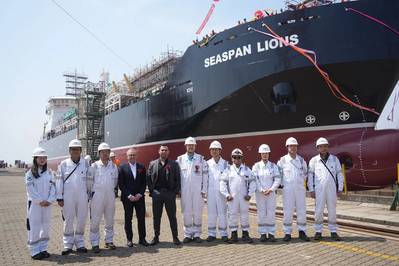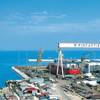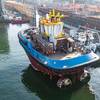Seaspan Launches Second LNG Bunkering Vessel
This week, Seaspan Energy launched the second of its three 7600m3 liquefied natural gas (LNG) bunkering vessels, the Seaspan Lions, named after the twin peaks of the North Shore, or known as Ch'ich'iyúy Elxwíkn (“Twin Sisters” or “Two Sisters”) to the Squamish Nation.
This series of vessels is named after iconic West Coast mountains and the first two vessels, the Seaspan Garibaldi ("Nch'kay") and the Seaspan Lions (Ch'ich'iyúy Elxwíkn), will be delivered in 2024 with the third vessel arriving in 2025.
The Seaspan Lions will provide LNG fueling services for vessels on the West Coast of North America, becoming the first company to provide LNG bunkering in the Pacific Northwest. The Seaspan Garibaldi is set to deliver low-carbon solutions to the global market and will be based in the Panama region.
“Solving the LNG infrastructure gap on the West Coast will play a vital role in creating new markets for lower-emission fuels and a more sustainable maritime industry,” said Ian McIver, President of Seaspan Energy. “We understand the importance of providing lowcarbon bunkering solutions for ship owners who want to decarbonize their operations and we are committed to supporting the transition to cleaner, lower-emission marine fuels in British Columbia, Canada and the world.
This series of vessels are each 112.8 meters in length, 18.6 meters in width, 5 meters in draft, with a design speed of 13 knots. The LNG bunkering vessels are being built by CIMC Sinopacific Offshore & Engineering (CIMC SOE), one of the most experienced small-scale gas carrier shipyards in the world, having delivered more than 30 LNG gas carriers.
For the design of the LNG bunker vessels, Seaspan worked closely with the Canadian based team at VARD Marine Inc. to incorporate emerging technologies resulting in a decrease in emissions and underwater noise. The design is focused on safe, efficient, and economical refueling of multiple ship types with an ability to transfer to and from a wide range of terminals. The design will allow the vessel to engage in ship-to-ship LNG transfer and coastal and short-sea shipping operations.















